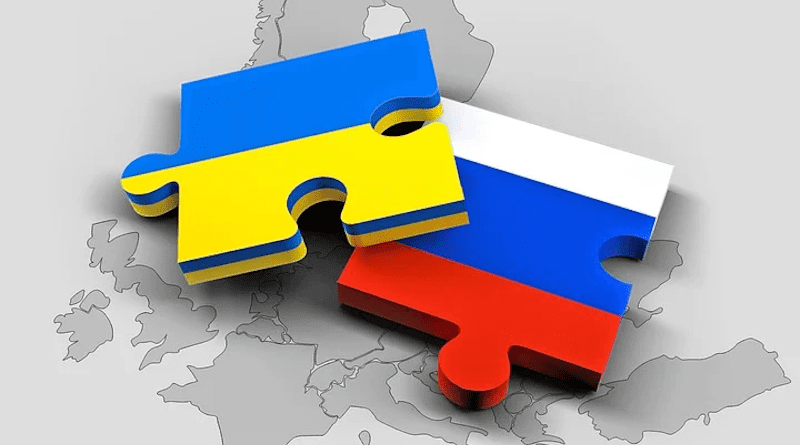Beyond The Edward Lucas-Peter Hitchens Exchange On Russia And Ukraine
Peter Hitchens’ September 27 Mail Online article “As Ukrainians force Russians to turn their back on their language and change their names, I ask, is this the world’s most absurd city?” on his visit to the Crimean port city of Sevastopol drew a reply from The Economist’s Edward Lucas (“Foggy at the bottom,” Eastern approaches, September 29). Lucas’ piece includes a follow-up last word from Hitchens. My thanks to Owen Polley of Three Thousand Versts of Loneliness for initially bringing Lucas’ commentary to my attention. As seems often if not always the instance with such interaction, some follow-up points can be added. (The capitalization of article titles and the respective venues they appear in are stated in line with the given preference.)
Lucas suggests that Hitchens leans towards favoring larger countries in disputes with smaller ones. In contrast, is it fair to say that Lucas tends to have a soft spot for smaller countries at odds with Russia? Larger countries are not always at fault, or near complete blame, in disputes with smaller nations.
The situation in Ukraine is not a simple matter of an ethnic Russian minority fifth column running opposite the majority of Ukraine’s population. Lucas’ friend, the late Roman Kupchinsky, is not alone in acknowledging pro-Russian sympathy among ethnic Ukrainians. (Kupchinsky’s comments about Russia and Ukraine are discussed in my Russia Blog article of this past February 9 “Improving Russia’s Image and Russo-Ukrainian Relations.”)
Politically aware Brits like Lucas and Hitchens know about the rival nationalist and pro-United Kingdom sympathies in Scotland. Ethnically and linguistically, Russians and Ukrainians are more closely related than Scots and English. This comparison is not made with the intent to deny the existence of the internationally recognized Ukrainian state. Rather, it is said to underscore the reality that much of Ukraine’s population does not view Russia with negativity, while feeling a close historical and cultural bond with their neighbor.
The Lucas and Hitchens exchange leaves open some room to further discuss the matter of public opinion in Ukraine on Russian related topics. Adding onto their dialogue are polls conducted over the years, indicating considerable support for closer Russian-Ukrainian ties. These polls include a May 25, 2009 published Research and Branding Group study and a February 18, 2010 announced IFAK-Ukraine International Research Agency survey.
Lucas pointedly brings up the World War II era deportation of the Crimean Tatars. There are a number of other particulars concerning the Crimean Tatars.
Part of Crimean territory became affiliated with the medieval state of Rus, which modern day Russia, Ukraine and Belarus trace their origin to. Later on, the Tatars settled in Crimea. The Tatar Khanate in Crimea established a slave trade against Slavs and some others. Crimea became part of the Russian Empire in 1783. During World War II, the Crimean Tatars were exiled and interned by the Soviet government, under very harsh conditions. The reason for this treatment (having to do with an ethically challenged notion of collective disloyalty during war) is akin to what Japanese North-Americans faced at the same time. (The latter had much better conditions, due to the more desirable wartime socioeconomic circumstances in North America and the different political situation between the Soviet Union and North America.)
Soviet leader Nikita Khrushchev’s 1954 transfer of Crimea from Russia to Ukraine was implemented to honor the 300th anniversary of a treaty uniting the post-Rus era Russian state with the Cossacks, who governed much of the territory of what is now contemporary Ukraine. The Cossacks have been portrayed as a sort of national symbol of Ukraine. Within present day Ukraine, the Cossacks are not (for the most part) among the Russia unfriendly grouping.
In the last years of the Soviet Union and thereafter, a number of the exiled Crimean Tatars sought to live in Crimea. Upon arriving to that region, many of them face socioeconomically challenged conditions. A good portion of Crimea’s non-Tatar population experience difficult socioeconomic conditions as well. The region’s Russian and Ukrainian residents generally get along with each other. Based on the last Ukrainian census of 2001, Crimea’s ethnic demography is 58.32% Russian, 24.32% Ukrainian, 12.1% Tatar, with the balance comprising others.
Crimean Tatar leader Mustafa Cemilev (whose last name is also spelled as Jemilev and Dzhemilev) is known for opposing politically mainstream Russian views, which include issues like the 2008 war in the former Georgian Soviet Socialist Republic and the Russian navy’s continued stay in Crimea past 2017. (Earlier this year, the Russian and Ukrainian governments agreed on a new lease for the Russian naval presence in Crimea.) There are some other Crimean Tatars who are considered politically extreme in comparison to Cemilev. Anti-Russian/Ukrainian nationalists (typically from outside Crimea) see the Crimean Tatars as an offset to pro-Russian sentiment in that region.
In actuality, the tension in Crimea between some Tatars and Slavs (Russians and Ukrainians) is not an issue of total or near total provocation of the latter, as suggested in some circles. When compared to the most intense of former Communist bloc ethnic disputes, Crimea’s predicament has been limited.
Hitchens mentions the noticeable use of the Russian language in Ukraine and Ukrainian school history text books having a negative and questionable view of Russia, that is not shared by much of Ukraine’s population. The Ukrainian perspective taking a noticeably critical stance towards Russia involves an activist spirit, which serves to give its position greater clout than its actual per capita standing. Offhand, from what I gather, the Russian language’s unofficial status in Ukraine ranks high in use among the unofficial languages spoken in other countries. In terms of usage, the Russian language in Ukraine compares favorably with some of the official languages in officially multilingual states.
On a related note, Leos Tomicek frequently discusses Russian and Ukrainian subjects at his blog Austere Insomniac. His October 3 and 9 posts are recent examples.

